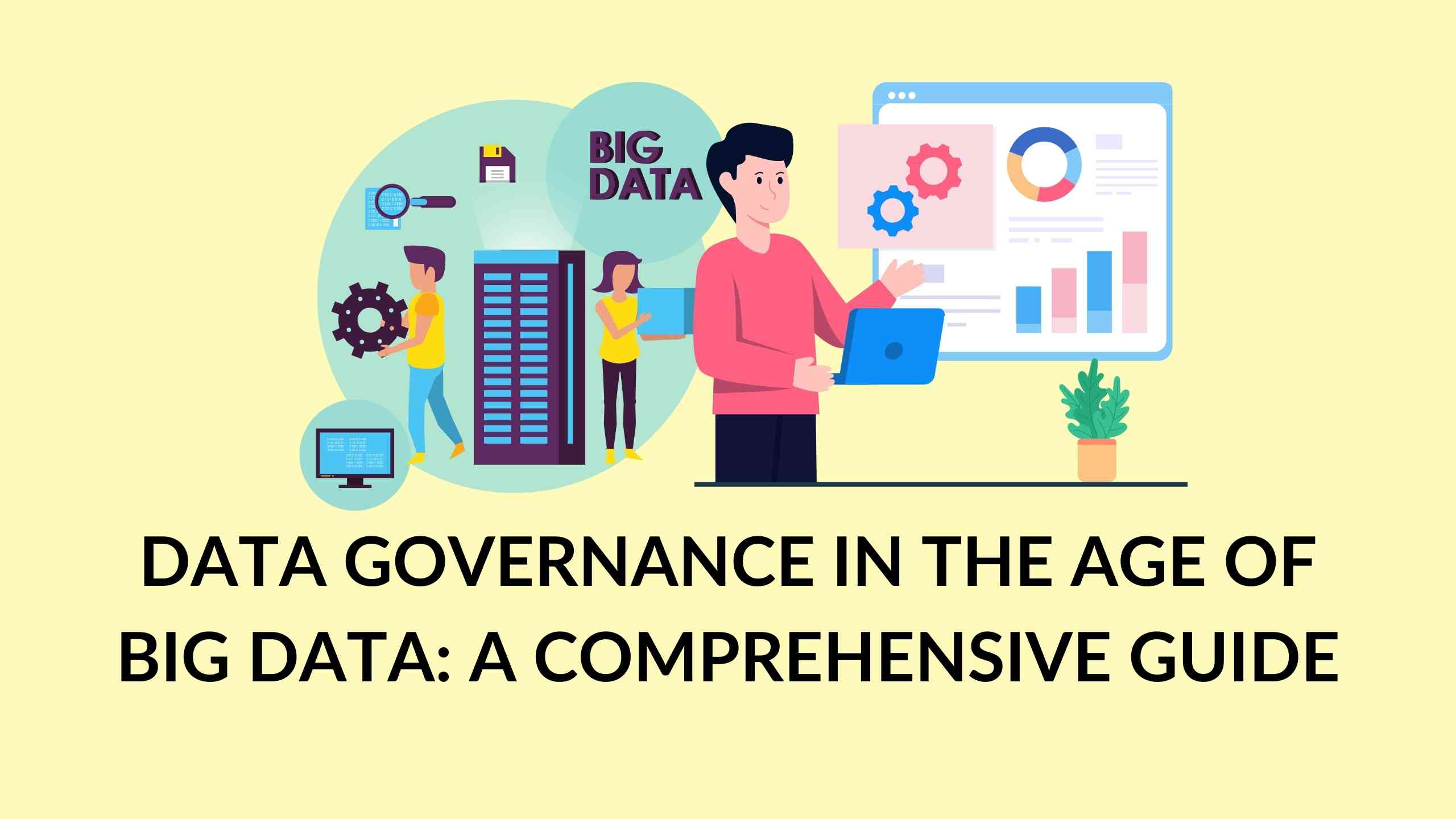Data Governance in the Age of Big Data: A Comprehensive Guide
- Data as a Service (DaaS) Software Marketing & Analytics


Navigating the Data Landscape: A Comprehensive Guide to Data Governance in the Age of Big Data
In the era of Big Data, where the volume and complexity of data are unprecedented, organizations face a critical challenge—how to ensure the availability, usability, integrity, and security of their data. This challenge is precisely where the concept of Data Governance comes into play. In this comprehensive guide, we will explore what data governance entails and how it can be a driving force behind organizational success.
Understanding Data Governance
Data governance serves as a comprehensive framework for managing an organization’s data. The ultimate goal is to empower data users to find, understand, and trust the data, facilitating better decision-making and delivering improved results. The pivotal aspects of data governance include:
- Security Assurance: Well-defined data governance policies play a crucial role in ensuring data security. In a world where data breaches can have severe consequences on consumer trust, security becomes a paramount concern. Organizations that experience breaches risk losing customers, with a significant impact on their reputation.Related Resource: ACM Digital Library – Data Governance Policies
- Regulatory Compliance: Different industries have specific concerns and regulatory requirements, such as BCBS 239, CCAR, SOLVENCY II, HIPAA, IDMP, and GDPR. A robust data governance solution addresses these concerns, ensuring compliance with evolving regulations.
- Key Governance Activities: Data governance tools play a crucial role in executing policies for various governance activities, including:
- Extract, Transform, and Load (ETL)
- Data quality maintenance
- Master Data Management (MDM)
- Life-cycle management
Metadata Management: The Backbone of Data Governance
Metadata, the information that provides context to data, plays a pivotal role in effective data governance. By 2020, Gartner predicts that 50% of information governance initiatives will be based on policies derived from metadata alone. Metadata falls into three categories:
- Descriptive Metadata: Describes the source for discovery and identification.
- Structural Metadata: Describes data models and reference data.
- Administrative Metadata: Provides information for managing and monitoring the data source.
Related Resource: BDO Digital – Data Governance Guide
Metadata Management on Hadoop: Harnessing Distributed Computing
Given Hadoop’s role as the centerpiece of many organizations’ data strategies, effective metadata management on this platform is crucial. The Hortonworks Data Platform (HDP) offers a suite of tools for comprehensive data governance through a metadata-based approach.
Apache Atlas, an integral part of HDP, facilitates the exchange of metadata within and outside the Hadoop stack. Working in tandem with tools like Ranger, Falcon, and Kafka, Apache Atlas completes the data governance package. It enables capabilities such as capturing data lineage, agile data modeling, REST API access, and metadata import/export.
Explore further on Hadoop Metadata Management
Metadata Management of the Entire Data Infrastructure
ACS Solutions specializes in designing and implementing Hadoop clusters, seamlessly integrating them with existing Business Intelligence infrastructure. The implementation encompasses metadata management to ensure consistency, integrity, and availability of data across various systems.
To achieve this, ACS Solutions leverages out-of-the-box applications on the Hortonworks Data Platform. This approach involves creating a communication layer that allows different systems to exchange metadata centrally using Apache Atlas. The four pillars of data governance in this context include Atlas, Ranger, Falcon, and a dataflow integration/workflow suite.
Related Resource: Credencys – Data Governance Framework Guide
Building a Self-Service Data Marketplace
The culmination of effective data governance is the creation of a self-service data marketplace within the organization. This marketplace allows users to navigate an ever-changing environment of vocabularies, taxonomies, and coding schemes. It empowers the data-driven organization to adapt to evolving requirements with ease.
In conclusion, data governance in the age of Big Data is not just a necessity but a strategic imperative. Organizations that prioritize data governance unlock the true potential of their data, fostering a culture of trust, informed decision-making, and continuous adaptability.
As we navigate the complexities of data governance in the age of big data, it’s important to have the right tools and resources at our disposal. That’s where Subscribed.FYI comes in. With their centralized platform, users can access comprehensive information about SaaS tools, making it easier to compare, evaluate, and select the best options for specific data governance requirements. Additionally, their free member-only deals and subscription management solution can help save time and money, allowing for better control over expenses and the ability to unlock savings on a wide range of SaaS tools. By empowering users to make informed decisions about their SaaS stack, Subscribed.FYI is a valuable resource for anyone looking to enhance their data governance strategy.
For those looking to take advantage of the benefits offered by Subscribed.FYI, be sure to check out Subscribed.FYI Deals to unlock secret deals and savings on over 100 SaaS tools. With the ability to manage all subscriptions in one place and keep track of expenses, Subscribed.FYI provides a valuable solution for freelancers, agencies, and teams alike. By simplifying decision-making and enhancing productivity, Subscribed.FYI is an essential tool for navigating the complexities of SaaS tools and expenses in the age of big data.
Additional Reading: Aspire Systems – The Need for Big Data in Data Governance








